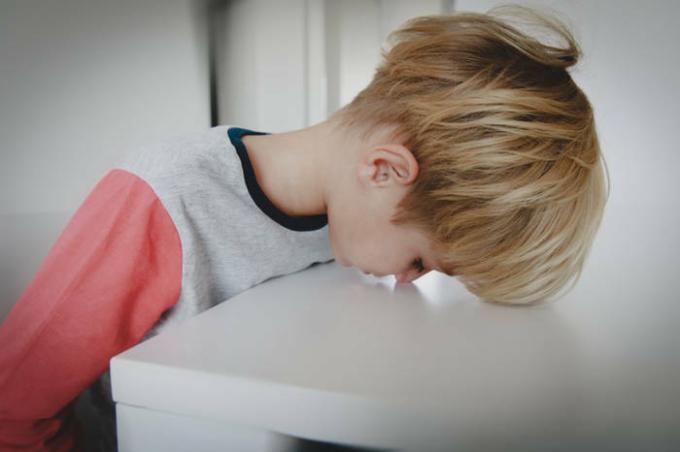If a child bites his nails or twists strands of hair - ignore or run to the doctor?
But many of them are in no hurry to show the child to a specialist, believing that it is fashionable to cope with such behavior by persuasion, threats and punishment. However, it is not. Here are 6 facts every parent should know about childhood repetitive movements.
1. Obsessions can also manifest themselves in rituals that are incomprehensible from the outside and seem strange: to bypass all obstacles only to the left or on the right, pull the handle a certain number of times before opening the door, pull the switch several times before leaving the room, and etc.

This is not just children's quirks, but a very real sign that it is time to see a neurologist and psychotherapist.
2. The child himself does not know why his rituals are so important to him. And he performs repetitive movements "automatically" when the brain is not involved in a specific task - for example, drinking from a cup.
Accordingly, hope that your conversations with the child and requests to stop will have no effect. Moreover, the child will begin to get irritated, angry, hysterical. And the more the parents get irritated and angry, the more they exacerbate the problem.
It is imperative to see a psychotherapist, because a child with his habits can harm his health, for example, if he bites his nails or tears his hair.
3. The diagnosis can be different, the treatment is also individual. Most often these are soothing herbal infusions, baths, psychotherapy. It is important to consult a specialist and not self-medicate.
4. What will the doctor do? First of all, look for reasons. These can be congenital pathologies, trauma, diseases of the central nervous system, functional disorder of the nervous system and etc. Most often, this is precisely the last option - that is, obsessive-compulsive syndrome - and it is the same harmless.

What could be the reason: lack of sleep, malnutrition, scandals and a difficult emotional situation in the family, overwork, imitation of other children.
5. How parents can help: do not scold or punish for these habits. A child really cannot get rid of them so easily. Try to spend more time together, and do it efficiently, without being distracted by extraneous matters.Improve the emotional climate at home - no scandals, shouts, threats and physical punishment, emotional abuse. The best way to distract a child from obsessions is to shift his attention to joint activities.
6. It is treated. Of course, there are rare cases when the cause is genetic abnormalities, but then repetitive movements are probably not the biggest problem in the family. If the case is ordinary and it's all in the head, then specialists and parental support usually help to cope.
Obsessions usually occur between the ages of 3-6 and 8-11. And when they appear after 8 years, they usually go away on their own.
You will also be interested to read:
- 5 ways adults can deal with their own childhood traumas
- 4 myths about psychosomatics
- What children's drawings can tell




